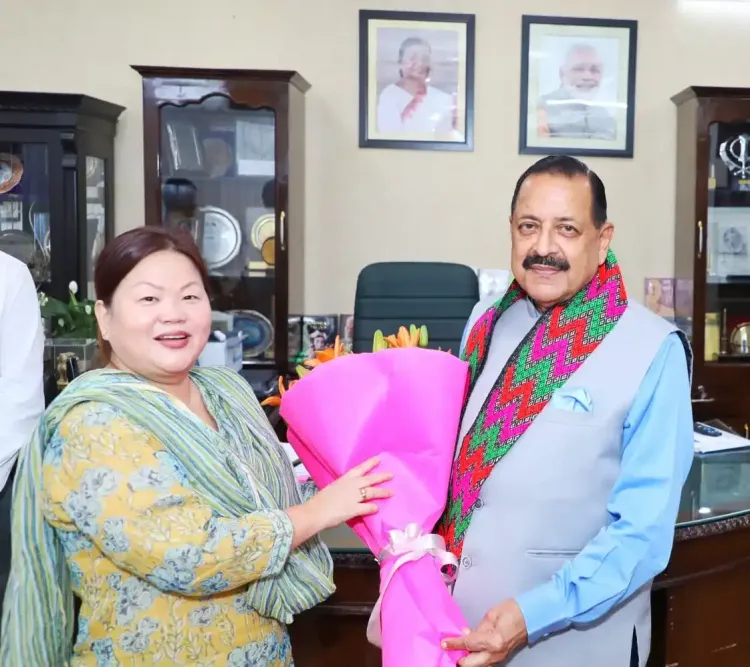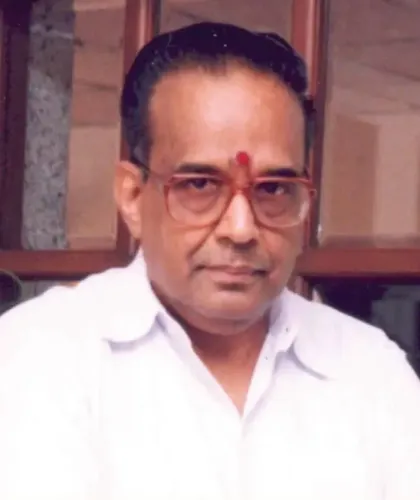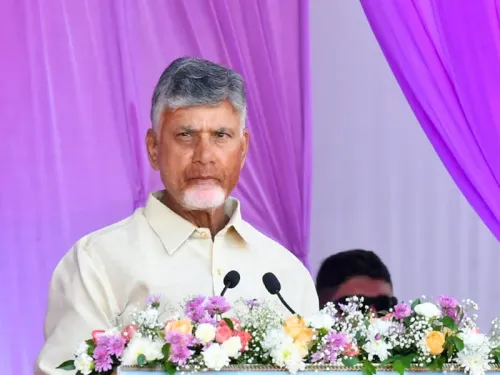Is Arunachal Pradesh Set to Establish India's First Ex-Situ Germplasm Bank?

Synopsis
Key Takeaways
- Establishment of India's first ex-situ Germplasm bank in Arunachal Pradesh.
- Focus on preserving rare and economically significant plant species.
- Creation of an Eastern Arunachal Regional Centre for sustainable resource management.
- Launch of a Bio-NEST Bioincubator to promote biotech startups.
- Commitment to biodiversity conservation and community economic development.
New Delhi/Itanagar, July 12 (NationPress) Arunachal Pradesh's Science and Technology Minister Dasanglu Pul convened a discussion with Union Minister of State (Independent charge) Jitendra Singh, where she advocated for the creation of India's inaugural ex-situ Germplasm bank in the northeastern region, aimed at safeguarding rare and economically vital plant species.
A senior official revealed on Saturday that during her meeting with the Union Minister in New Delhi on Friday, the Arunachal Pradesh minister also recommended the establishment of an Eastern Arunachal Regional Centre for Bioresource Management and Development. This center would utilize the region's abundant ecological resources in a sustainable fashion.
Germplasm banks are facilities dedicated to the preservation of genetic resources (germplasm) of plants and animals, typically stored as seeds, tissues, or DNA, for long-term conservation and prospective future applications in breeding programs, research, and conservation initiatives.
Pul discussed with Singh several key proposals aimed at enhancing biodiversity conservation and promoting a bioeconomy in Arunachal Pradesh, known for its rich biodiversity. She emphasized the significance of innovation and entrepreneurship, proposing the establishment of a Bio-NEST Bioincubator in Roing, located in the Lower Dibang Valley district, which would serve as a launchpad for biotech-focused startups and research-driven enterprises.
Moreover, Pul, who also oversees the Women and Child Development portfolio, urged the Union Minister to accelerate the release of core grant support for the Arunachal Pradesh State Council for Science and Technology, citing the necessity to resolve ongoing staffing issues. “Our state is blessed with an astounding array of biodiversity, and we must act promptly to conserve it while laying a robust foundation for scientific research and innovation,” stated Pul. She noted that these proposals are crafted not merely for conservation but also to transform our natural resources into economic opportunities for local communities.
Singh reaffirmed the Centre's strong commitment to comprehensive and sustainable development in the northeast, highlighting that Science and Technology should act as a fundamental driver of growth. “The development of the northeast has been one of Prime Minister Narendra Modi’s top priorities. The changes since 2014 are clear—what was once a region plagued by connectivity issues is now experiencing unparalleled infrastructural, technological, and human resource advancements,” the Union Minister remarked.
He pledged full support from the Union Ministry and praised the state government’s dedication to scientific progress and sustainable development.










